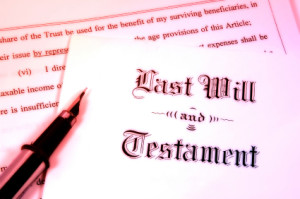Dear Liz: My dad’s will clearly divided his estate equally between his two sons. By the time Dad died, my brother had two kids. After the funeral, my sister-in-law sat me down and told me that everything will be divided into three parts. I would get one-third and they get two-thirds, because they had the kids. This was not a request; it was, “That’s the way it’s going to be and there’s nothing you can do about it.” My brother, who was the executor, was nowhere to be seen — a pattern when dealing with money issues. This was many years ago. I was a student at the time. I went along with it but wonder to this day about the fairness of the situation.
Answer: Wonder no more. If the situation was as you describe and your brother ignored your father’s will, then he wasn’t just unfair to you. He violated the law.
Executors are supposed to follow the will’s directions to the best of their ability. If they don’t, they can be held personally responsible. But each state has statutes of limitation that give you only a certain amount of time to file a civil lawsuit in these situations. You may have a bit more time if you were a minor when all this happened, but you’d want to consult an attorney to discuss your options.
You wouldn’t be the first person done out of an inheritance by a self-dealing sibling, unfortunately. This should be a reminder to parents not to reflexively choose the oldest child, or indeed any child, to fill this role without thinking about the child’s character.
 Today’s top story: Writing a will? How to stop stalling and get it done. Also in the news: Hidden financing traps in car shopping, how to protect yourself in the Words with Friends data breach, and the big wedding expense nearly half of married couples regret.
Today’s top story: Writing a will? How to stop stalling and get it done. Also in the news: Hidden financing traps in car shopping, how to protect yourself in the Words with Friends data breach, and the big wedding expense nearly half of married couples regret.